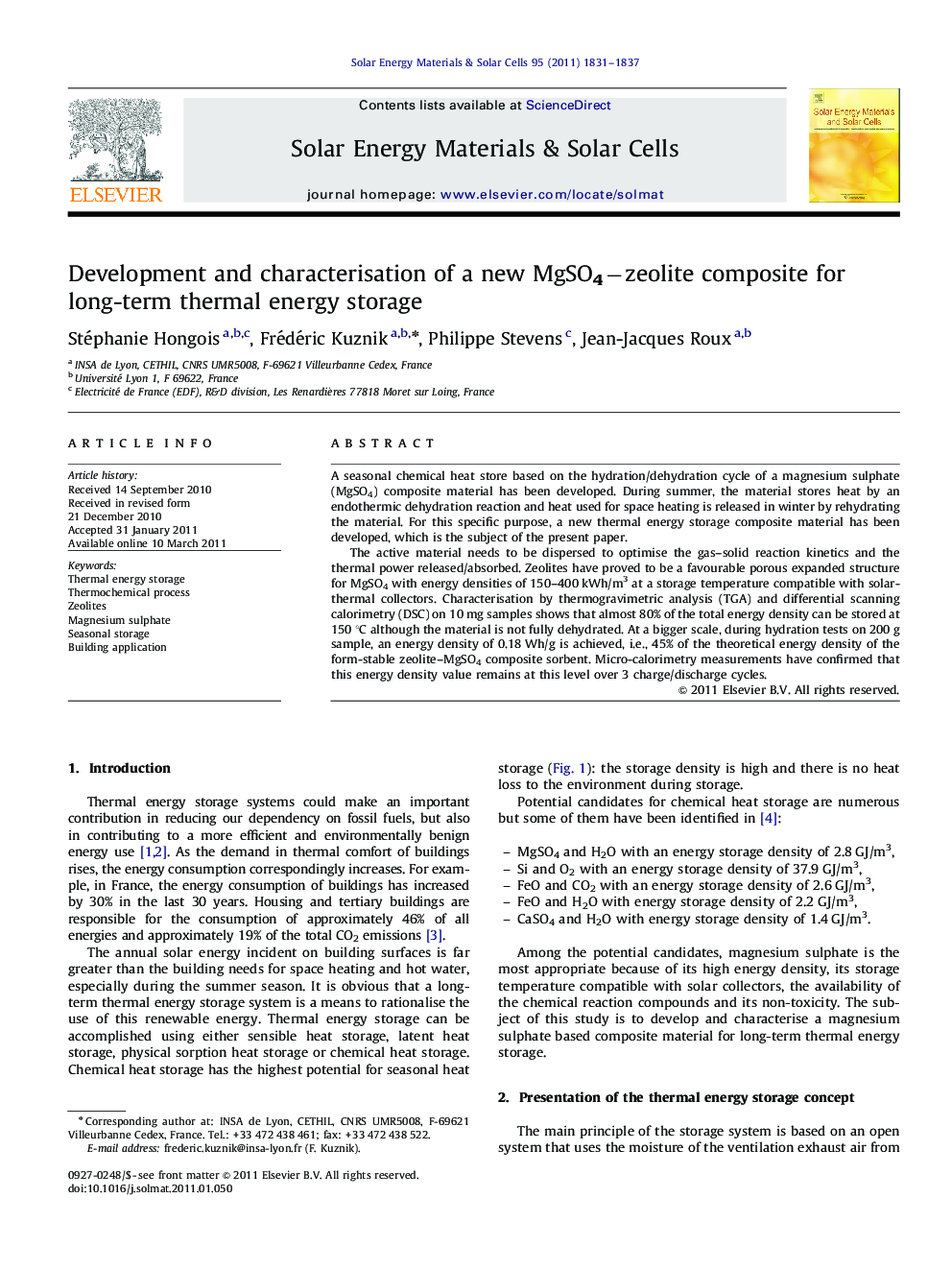| Article ID | Journal | Published Year | Pages | File Type |
|---|---|---|---|---|
| 78858 | Solar Energy Materials and Solar Cells | 2011 | 7 Pages |
A seasonal chemical heat store based on the hydration/dehydration cycle of a magnesium sulphate (MgSO4) composite material has been developed. During summer, the material stores heat by an endothermic dehydration reaction and heat used for space heating is released in winter by rehydrating the material. For this specific purpose, a new thermal energy storage composite material has been developed, which is the subject of the present paper.The active material needs to be dispersed to optimise the gas–solid reaction kinetics and the thermal power released/absorbed. Zeolites have proved to be a favourable porous expanded structure for MgSO4 with energy densities of 150–400 kWh/m3 at a storage temperature compatible with solar-thermal collectors. Characterisation by thermogravimetric analysis (TGA) and differential scanning calorimetry (DSC) on 10 mg samples shows that almost 80% of the total energy density can be stored at 150 °C although the material is not fully dehydrated. At a bigger scale, during hydration tests on 200 g sample, an energy density of 0.18 Wh/g is achieved, i.e., 45% of the theoretical energy density of the form-stable zeolite–MgSO4 composite sorbent. Micro-calorimetry measurements have confirmed that this energy density value remains at this level over 3 charge/discharge cycles.
Graphical AbstractFigure optionsDownload full-size imageDownload as PowerPoint slideResearch highlights► Development of composite material for long-term solar heat storage in buildings. ► Composite material: magnesium sulfate incorporated in a zeolite porous matrix. ► Energy density of the composite 166 kWh m−3 for thermal energy storage.
